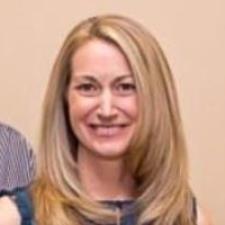 Post Classifieds
Post Classifieds
10 SECONDS with Plymouth State Athletic Training
10 SECONDS with Plymouth State Athletic Training
Kendal Lariviere
For The Clock
klariviere@plymouth.edu
Athletic trainers maintain a similarly chaotic schedule to student athletes. They attend every practice, travel with teams for away games and tournaments, give treatment and rehab in the AT room for hours before and after practices, games, and even on off days. On the calmest workday, the athletic training staff may only need to fill a team’s water bottles and ensure that their athletes are staying hydrated, but that’s an uneventful day. Athletic trainers rarely get off so easy. Most of the time, their days are full of stretching sore and injured athletes, patching up bruises, turf burns, and gashes, or administering concussion evaluations. Injuries are an unfortunate, but inevitable part of sports, especially at the competitive collegiate varsity level.
The athletic training staff is an essential part of any athletic department—they are the oil that keeps the machine running smoothly. While at first glance, it may seem as though they are merely observers on the sidelines of practices, athletic trainers are ready to spring into action at any moment. They keep careful watch over student athletes, ensuring that proper treatment is given to those who need it, and future injuries are prevented. The athletic training staff at PSU does an exceptional job keeping our student athletes heal thy and safe. Being a student athlete for the past four years, I’ve seen their incredible work firsthand. The athletic trainers not only treat and rehabilitate our injuries, but enthusiastically support our teams on the field, too. They patch us back together, and cheer us on as we push our performance further. For this week’s installment of “10 Seconds,” Georgia Rieger, a graduate assistant who serves as the team AT for the field hockey and softball teams at PSU, and Mark Legacy, PSU’s Head Athletic Trainer and Assistant Athletic Director, took time out of their busy schedules to speak with me about their experiences in the challenging field of athletic training.
Why did you want to be an athletic trainer?
Georgia Rieger: I have always known I wanted to be in the health-care profession. I love helping others and being able to provide care to those in need. The difference between the athletic training profession and other health care fields, such as physical therapy or nursing, is the ability to interact with your patient every day when the patients are healthy and when they are sick. As an athletic trainer, I become familiar with the patient's affect and personality. This daily contact allows a deeper understanding of the person and the injury they may present to me. I am then able to help facilitate a once-healthy patient overcome an injury and return to their sport. This process is very rewarding.
How did your earlier experiences with sports influence your career choice?
GR: While in high school, my certified athletic trainer, Mr. Mesich, approached me one day asking if I would be willing to volunteer my time after school with the football team as a student athletic trainer. The opportunity to work side-by-side with my certified athletic trainer showed me the passion he had for the care of his athletes and how new and varying "a day at the office" really is. I loved being outside every day and not knowing what to expect. Something new could happen at any second, and it is the certified athletic trainer's job to rise up and meet these challenges. I owe everything to Mr. Mesich. He introduced me to my life passion.
What was your "welcome to athletic training" moment?
GR: My "welcome to athletic training" moment occurred during my first rotation in undergrad. I was assigned to a local high school. I mainly assisted with varsity and junior varsity football. During one JV football game, an athlete went down on the field after sustaining a blow to the abdomen from a helmet. In short, EMS had to be activated and the athlete's vitals were monitored as it was suspected he ruptured his spleen. The day was eye-opening, yet solidified my career choice.
What are your future goals as an athletic trainer?
GR: My end goal is to obtain an athletic training job in the DII setting. I would ideally work my way into becoming a professor of athletic training while continuing to keep ac- tive in the clinic. In regards to teaching, I love sharing my knowledge with others and helping students comprehend new and foreign topics. It is extremely rewarding to find each student's learning styles and tailor my approach to each individual.
What do you like about working at the collegiate level of athletics?
GR: I enjoy working with collegiate athletes because I am able to focus on my individually assigned sports. My specific sports get my undivided attention. Contrast this to the high school setting, where the certified athletic trainers are required to cover every sport and care for every athlete. This kind of large coverage can lead to less familiarity with the individual athletes, which is an aspect I strive for. In addition, collegiate athletes are more mature and focused on their individual sport. There is more dedication and passion that is observed in collegiate athletes. This is a great atmosphere tobeapartof.
What challenges have you faced in you AT experiences so far?
GR: The biggest challenge I have
had to face as a certified athletic trainer is supervising the athletic training students here at PSU. I am a young graduate assistant in charge of students that are of similar age and some even older. It was a challenge to overcome, but has made me a better certified athletic trainer. My students challenge me every day and I am thankful for that.
Why did you choose PSU?
GR: I chose PSU because the master's program encompasses a higher education component. Again, I aim to be a professor of athletic training in the future. The higher education concentration allows me to get teaching experience in the classroom in front of students. What led to you becoming an athletic trainer?
Mark Legacy: Upon graduating
high school, I enrolled at UNH for a degree in business administration. After my first year, I realized that degree was not for me. I took a year off from school trying "to find myself" and find a career path that was both rewarding and challenging. I spoke with an individual that specializes in determining your strengths and weaknesses, and following several meetings and a test, it was determined that a route in physical education was my best option. I had always been active in sports, playing soccer, hockey, and tennis at the high school level, but knew I did not want to be a physical educator. This individual mentioned several different disciplines within physical education, and when I researched athletic training, I felt this was a good fit for me. I enrolled at Keene State and graduated with a sports medicine degree three years later.
What do you enjoy most about being the head athletic trainer at PSU?
ML: I would have to say the people--whether it be my AT staff, administration, support staff, AT students, or student-athletes. Everyone here works to ensure a positive experience for our student-athletes. It is a great team approach. We all put in long hours, but what makes it enjoyable is the camaraderie and light atmosphere within our department. I can say, for the most part, we all enjoy coming into work every day, looking for an opportunity to help others.
What is your favorite memory at PSU?
ML: So many, but what keeps me going is the satisfaction I get when working with our AT students and student-athletes. It's rewarding to see an AT student, that maybe lacks confidence in their abilities and is doubting themselves in our demanding major, succeed. Knowing I had something to do with their transformation, giving them the tools to succeed, and watching them excel in this profession following their time here at PSU, that's pretty cool.
Get Top Stories Delivered Weekly
More theclockonline News Articles
- Women's Lax Drops Opener Against Babson
- Season Ends on a Sour Note, but There’s Hope on the Horizon
- Wrestling: da Silva places 6th at Regionals
- Plymouth Paradise: Rail Jam 2019
Recent theclockonline News Articles
Discuss This Article
MOST POPULAR THECLOCKONLINE

Campton Elementary School 8th Grade Silent Auction & Spaghetti Dinner By Rebecca Tgibedes

Will You? By Isabelle Elsasser

Summer in the Sunflowers By Emily Holleran

Student Spotlight: Sabrina Siegel By Justine Walsh
GET TOP STORIES DELIVERED WEEKLY
FOLLOW OUR NEWSPAPER
LATEST THECLOCKONLINE NEWS
RECENT THECLOCKONLINE CLASSIFIEDS
OUTSIDE THE LINES
- A Story To Sing About
- The Gap in Gum Care: Why Caring For Your Teeth’s F...
- Top Tips for Signature Scents and Better-Smelling Laundry
- A Dog Trainer’s Top Tips to Support Pets Through Life S...
- Clear the Air of Indoor Pollutants This Spring
- Stroke & Dementia in Black Men: Tips for Staying Healthy...
- Hispanics and African Americans at Higher Risk for Eye...
- African Americans at Higher Risk for Eye Disease
- Infinity Kings: Final Book In A Favorite Fantasy Series
- What You Need To Know About Keratoconus and the iLink...
FROM AROUND THE WEB
- 7 Reasons Renting an RV Should Be On Every Family’s S...
- Don’t Let Diabetes Shortchange Your Golden Years
- No Child is Forgotten By Marine Toys for Tots
- Sweeten Your Springtime Salads With Healthy Chilean Grapes
- Young Author Translates 4,000-Year-Old Text to Reveal...
- Keeping Cool and Energy-efficient Amid America’s “...
- Addressing Sarcopenia with a Healthy Diet
- Subway’s New Wraps Elevate Eating on the Go
- Family Teacher Conference Topics Beyond Academics
- Youth Take Down Tobacco
COLLEGE PRESS RELEASES
- Shoff Promotions Comic Book & Sports Card Show
- Semiconductor Research Corp unveils 2024 Research Call, $13.8M Funding
- Charles River Associates Opens Second Scholarship Cycle, Expands to the UK
- BLUMHOUSE AND AMC THEATRES LAUNCH FIRST-EVER HALFWAY TO HALLOWEEN FILM FESTIVAL
- THE GEN Z IMPERATIVE: LISTEN TO FEELINGS AND GIVE GEN Z A VOICE













